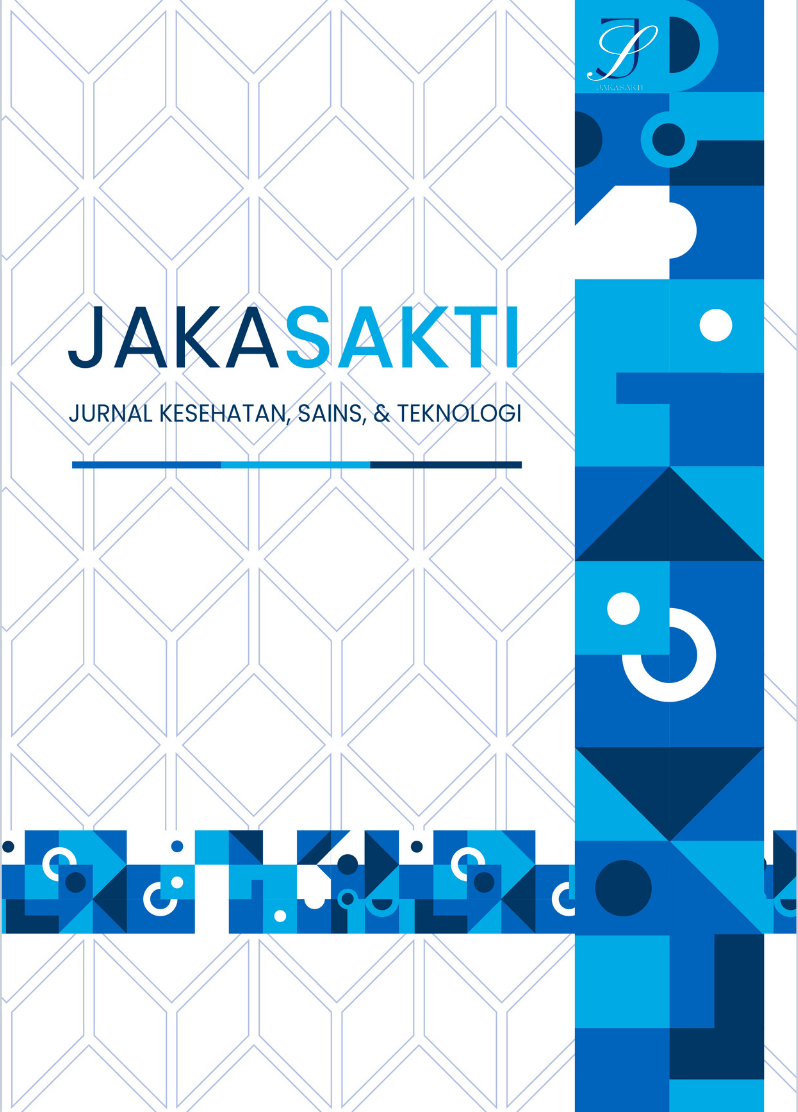The Relationship between Sleep Quality and Emotional Intelligence among Nurses in Denpasar
Main Article Content
Abstract
This study explores the relationship between sleep quality and emotional intelligence among nurses in Denpasar. Sleep quality encompasses duration, depth, and efficiency, while emotional intelligence includes self-awareness, self-regulation, motivation, empathy, and social skills. Using a quantitative correlational design, the study involved 73 nurses selected through simple random sampling. Instruments used were the Pittsburgh Sleep Quality Index (PSQI) and an emotional intelligence scale based on Goleman's model. Data were analyzed using Pearson's correlation test, revealing a positive and significant relationship between sleep quality and emotional intelligence. Interestingly, even with reduced sleep quality, nurses demonstrated improved emotional intelligence, suggesting a potential adaptive response that may positively influence healthcare service quality.
Article Details

This work is licensed under a Creative Commons Attribution-NonCommercial-ShareAlike 4.0 International License.
![]()
This work is licensed under a Creative Commons Attribution-NonCommercial-ShareAlike 4.0 International License.
References
Asarnow, L. D., & Mirchandaney, R. (2024). Sleep and mood disorders among youth. Psychiatric Clinics of North America, 47(1), 255–272. https://doi.org/10.1016/j.psc.2023.06.016
Badan Pusat Statistik (BPS). (2023, June 13). Banyaknya tenaga kesehatan menurut kabupaten/kota di Provinsi Bali, 2022. https://bali.bps.go.id/statictable/2018/06/29/120/banyaknya-tenaga-kesehatan-menurut-kabupaten-kota-di-provinsi-bali-2019-2022.html
Bell, T., Sprajcer, M., Flenady, T., & Sahay, A. (2023). Fatigue in nurses and medication administration errors: A scoping review. Journal of Clinical Nursing, 32(17–18), 5445–5460. https://doi.org/10.1111/jocn.16620
Cho, H., & Steege, L. M. (2021). Nurse fatigue and nurse, patient safety, and organizational outcomes: A systematic review. Western Journal of Nursing Research, 43(12), 1157–1168. https://doi.org/10.1177/0193945921990892
Fitri, N. (2023). Pengembangan alat ukur kecerdasan emosional. Jurnal Ilmiah Wahana Pendidikan, 9(24). https://doi.org/10.5281/ZENODO.10433909
Goleman, D. (1999). Working with emotional intelligence (Bantam export edition). Bantam Books.
Grandner, M. A. (2022). Sleep, health, and society. Sleep Medicine Clinics, 17(2), 117–139. https://doi.org/10.1016/j.jsmc.2022.03.001
Jagannathan, S., Ra, S., & Maclean, R. (2019). Dominant recent trends impacting on jobs and labor markets—An overview. International Journal of Training Research, 17(sup1), 1–11. https://doi.org/10.1080/14480220.2019.1641292
Kerlinger, F. N., & Lee, H. B. (2000). Foundations of behavioural research (4th ed.). Wadsworth.
Labrague, L. J., Al Sabei, S., Al Rawajfah, O., AbuAlRub, R., & Burney, I. (2022). Interprofessional collaboration as a mediator in the relationship between nurse work environment, patient safety outcomes and job satisfaction among nurses. Journal of Nursing Management, 30(1), 268–278. https://doi.org/10.1111/jonm.13491
Lueke, N. A., & Assar, A. (2024). Poor sleep quality and reduced immune function among college students: Perceived stress and depression as mediators. Journal of American College Health, 72(4), 1112–1119. https://doi.org/10.1080/07448481.2022.2068350
Mitsea, E., Drigas, A., & Mantas, P. (2021). Soft skills & metacognition as inclusion amplifiers in the 21st century. International Journal of Online and Biomedical Engineering, 17, 121–132.
Nashori, F., & Wulandari, E. D. (2017). Psikologi tidur: Dari kualitas tidur hingga insomnia. Yogyakarta: Universitas Islam Indonesia.
O’Connor, P. J., Hill, A., Kaya, M., & Martin, B. (2019). The measurement of emotional intelligence: A critical review of the literature and recommendations for researchers and practitioners. Frontiers in Psychology, 10, 1116. https://doi.org/10.3389/fpsyg.2019.01116
Paller, K. A., Creery, J. D., & Schechtman, E. (2021). Memory and sleep: How sleep cognition can change the waking mind for the better. Annual Review of Psychology, 72(1), 123–150. https://doi.org/10.1146/annurev-psych-010419-050815
Patke, A., Young, M. W., & Axelrod, S. (2020). Molecular mechanisms and physiological importance of circadian rhythms. Nature Reviews Molecular Cell Biology, 21(2), 67–84. https://doi.org/10.1038/s41580-019-0179-2
Salovey, P., & Mayer, J. D. (1990). Emotional intelligence. Imagination, Cognition and Personality, 9(3), 185–211. https://doi.org/10.2190/DUGG-P24E-52WK-6CDG
Susanto, P. C., Supardi, S., Parmenas, N. H., Tannady, H., & Soehaditama, J. P. (2023). Mini Review: Work-Life Balance, Psychological Structure, Employee Resilience, and Organization Commitment to Employee Wellbeing. International Journal Of Psychology and Health Science, 1(2). https://doi.org/10.38035/ijphs.v1i2.208
Ujma, P. P., Bódizs, R., & Dresler, M. (2020). Sleep and intelligence: Critical review and future directions. Current Opinion in Behavioral Sciences, 33(), 109–117. https://doi.org/10.1016/j.cobeha.2020.01.009
